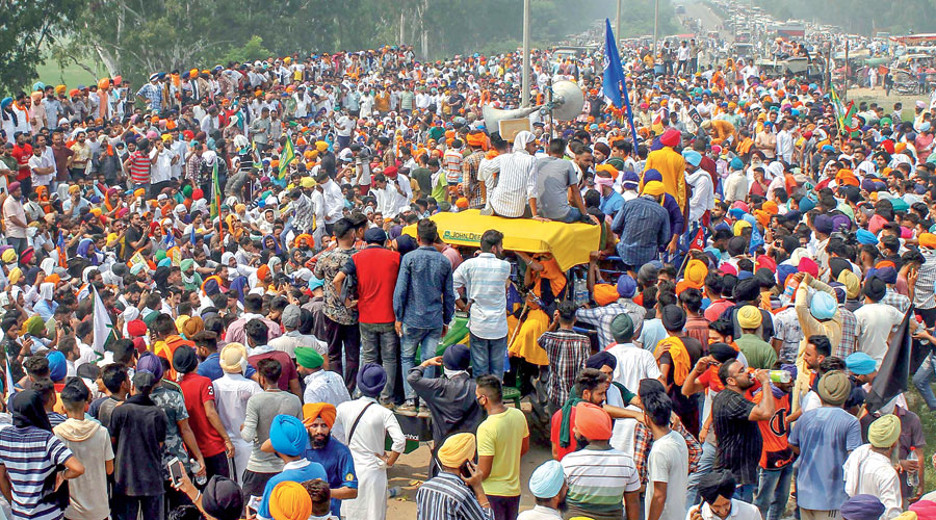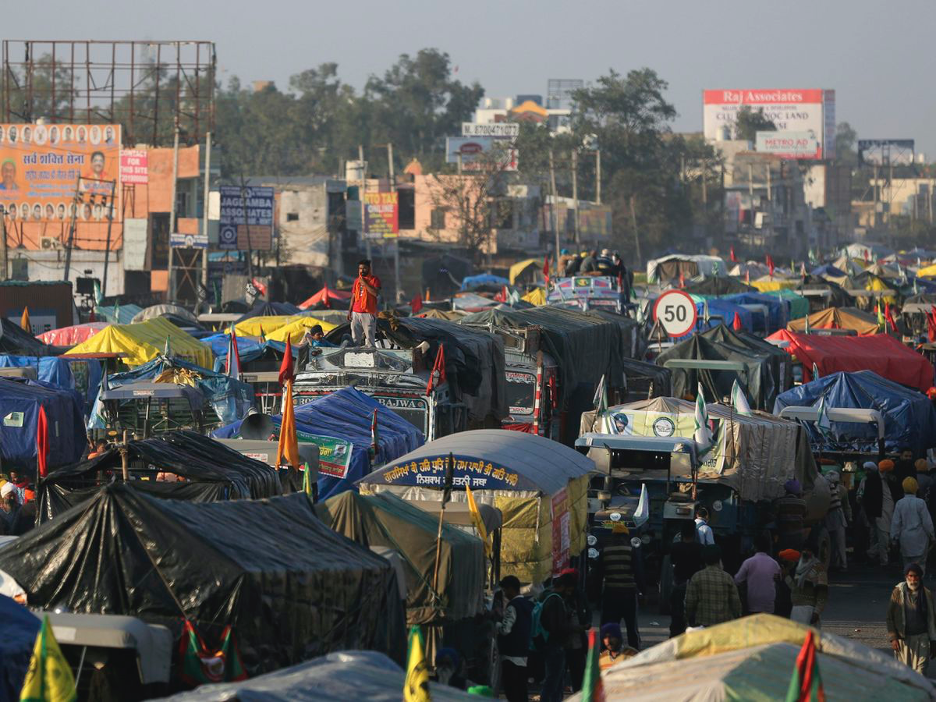Controversial Laws Around the World: India's New Agricultural Laws
- Megan Leanne Smith.

- Jan 22, 2021
- 4 min read
In this month’s controversial laws around the world, we will be focusing on three new agricultural laws established in India which have sparked numerous protests from the country’s farmers.
What You Need to Know
On the 5th June 2020, in the midst of a global pandemic, the Indian government promulgated three ordinances in relation to agricultural marketing. These bills received presidential assent and on the 27th September the bills were subsequently notified in the gazette. These three bills have several outcomes which include relaxing restrictions governing the purchase and sale of farm produce, decreasing restrictions on stocking under the Essential Commodities Act and introducing contract farming legislation (per the India Forum). The overall goal of these bills is to collectively reduce barriers that actors in the agricultural food supply chain face through creating a unified national market.
Regulation is a fancy term used for the task of policing. Policing of a market is important for specific standards and safety measures. Deregulation is when the government eliminates these standards and restrictions. The removal of market regulation in the agricultural sector means that the market protection that farmers relied on are taken away. Some of the protections of a regulated market include an assured price and dealing with licensed agents.
The importance of market regulation can be seen from how guaranteed minimum prices for certain essential crops previously helped India to overcome the dire hunger of the 1960’s and in recent years it has helped farmers to produce a surplus of grain (per the NY Times). A vegetable farmer residing in western Uttar Pradesh highlighted the danger of deregulating the market by stating that some of the farmer’s limited knowledge of price dynamics can easily be exploited by the entry of private companies.
Another market which has previously felt the danger and consequences of deregulation is the financial industry. The deregulation of the financial industry was one of the big factors for the cause of the 2008 Global Financial Crisis. For a more in depth discussion of deregulation and the financial crisis I suggest you take a quick look here.
Why Are the New Laws Controversial?
These three new bills are labelled as controversial as farmers in India fear that the removal of state protections will leave them vulnerable to corporate greed. On the other hand, many have described the new bills as a “watershed” moment, as the bills unshackle the Indian farmer and fulfil the dream of creating “one nation, one market”. Although these new bills have been described as showing great potential to increase profits for farmers, many fears have arisen towards whether these bills in their current form can create the desired benefits. The biggest problem that is evident with the new bills is the absence of regulatory oversight. The absence of regulatory oversight leaves the public vulnerable to the market.
This vulnerability has already been felt by many farmers and has subsequently led to mass protests. This mass protest of over half a million farmers has been ongoing since November, and is aimed at getting the new agricultural bills repealed. Farmers around New Delhi’s border have set up camp on a 10 mile stretch of highway and are being described as virtual cities. These protest camps are one of the largest sustained protests that the country has seen in decades, and it continues to operate regardless of the rain, cold and deaths that persist. This mass protest seems absurd to many around the world as COVID-19 continues to devastate many countries, however, this is the farmer’s livelihood that they are fighting for. One protestor stated that his grandfather, who is also protesting in the camp, does not fear corona, he only fears for their future (per the NY Times). This statement is a harsh reality of the disapproval of the new bills and represents the desperation of the farmers fighting for change.
The protest camps have made life for the protestors fully sustainable and includes elaborate rallying stages, a farmers mall for essential hygiene products and laundry stalls with washing machines. There are even medical tents with volunteers who will take care of minor illnesses (per the NY Times). The BBC’s Rupa Jha spent a night at the protest camp and adequately showed what life in the protest settlement is like:
The mass protests have been highlighted as one of the greatest political challenges to face Narendra Modi, who has been the Prime Minister of India since 2014. Nearly 60% of the population depend on agriculture for their livelihoods and therefore the Modi administration cannot afford to ignore the ongoing protests and demands by farmers.
What Happens Now?
The Supreme Court of India has recently suspended the controversial new bills. In addition to suspending the new bills, the Court also ordered the creation of a committee to investigate the farmer’s grievances over the new bills. The judges of the Court expressed concern with regards to two matters. These two matters included disapproval towards how current negotiations had gone and secondly towards the lack of consultation the prime minister had with farmers regarding the passing of the bills (per the Guardian). However, although a committee formation has been ordered, farming unions have stated that they will not be participating in any court-ordered committee and that they will not call off the protest until the new bills are repealed. It has been highlighted that the Court’s decision to suspend the new bills gave the government an easy escape from the negotiation standstill without yielding to the demands of the farmers. The latest news on the protests is that the farmers intend to go ahead with a planned protest tractor rally through Delhi on the 26th January on India’s Republic Day.












Comments